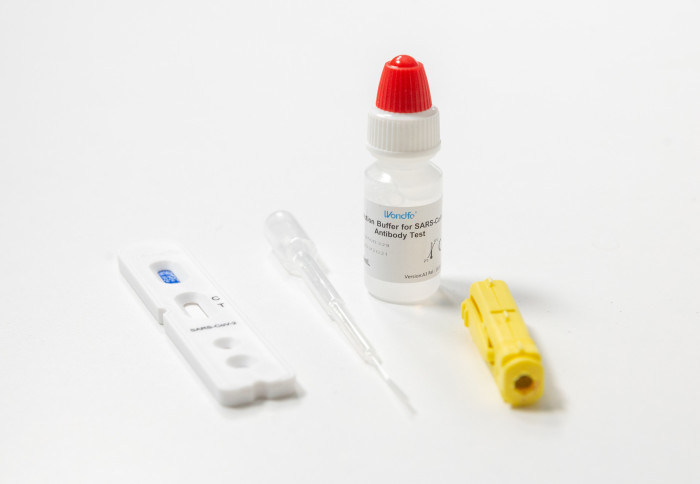Self-test kits can monitor the spread of COVID-19 in communities
by Maxine Myers

Antibody home testing kits could be used to help monitor the rate of COVID-19 infections in communities, says an Imperial researcher.
Professor Helen Ward, Professor of Public Health at Imperial College London, is leading a national study to assess a number of rapid antibody tests for their accuracy and to see how easily people can use them at home without assistance from a healthcare professional.
This is part of a national programme called REACT 2. The antibody tests are carried out by participants in their own homes, and can be used to see how far the virus has spread in the population, and which areas and groups have been most affected.
Professor Ward was speaking at the Imperial College Academic Health Science Centre (AHSC) COVID-19 online seminar series which took place earlier this month. Watch the seminar recording below:
How far can antibodies prevent reinfection?
Antibodies are proteins that act as ‘record cards’ of previous infections encountered by the body, enabling the immune system to quickly recognise and destroy the virus upon reinfection. People who have recovered from infection with SARS-CoV-2, the virus which causes COVID-19, usually develop antibodies. The new tests will help to determine the extent to which these antibodies can prevent reinfection and how long that protection might last.
Professor Ward explained how a team of researchers at Imperial College London have been evaluating 11 different antibody prick tests to verify their performance, accuracy and how easy they were to use at home. Initial results found that the best performing tests are suitable for large-scale surveillance studies to monitor the spread of the virus across the country.
Next steps
Now, more than 100,000 volunteers have been sent antibody finger prick tests in the world’s largest home antibody surveillance study in the general population. Professor Ward explained that these can be useful for monitoring the spread of COVID-19 infections within communities in the UK and to help shape policy as lockdown measures are eased.
The team will also conduct a follow-up study in 15,000 volunteers to see whether their antibodies makes them immune from future COVID-19 infections. They will also assess whether a positive antibody result leads to a change in behaviours in the general population such as not following government guidelines on social distancing.
Article supporters
Article text (excluding photos or graphics) © Imperial College London.
Photos and graphics subject to third party copyright used with permission or © Imperial College London.
Reporter
Maxine Myers
Communications Division
